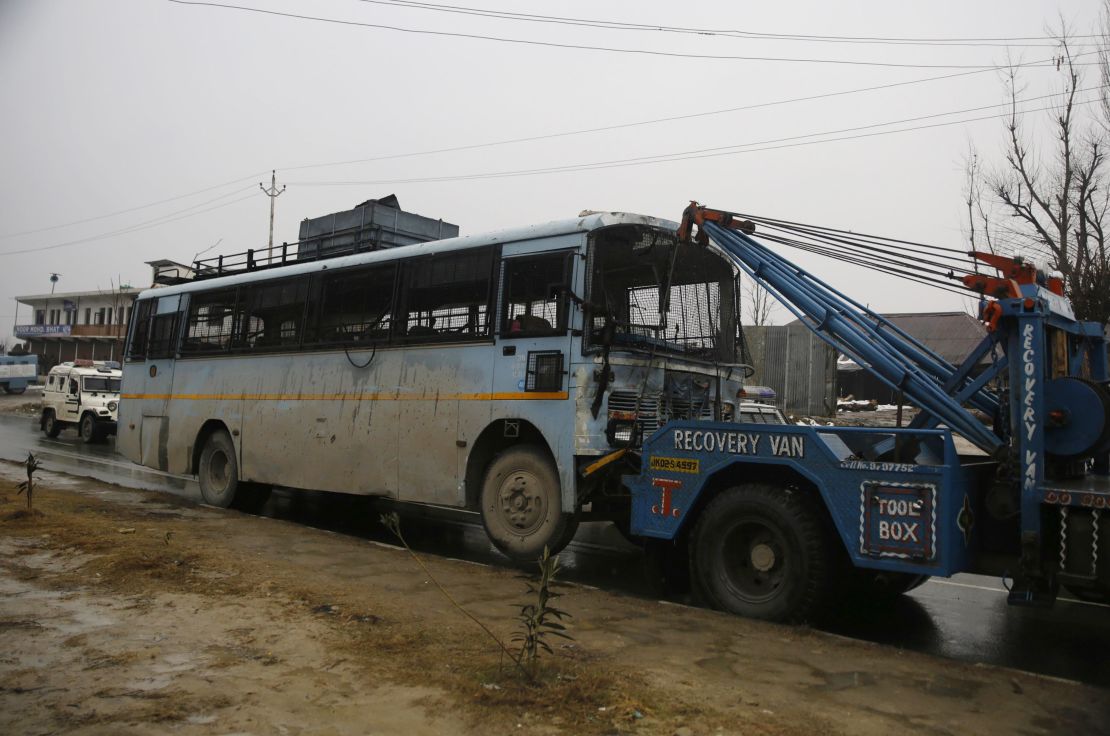Once again, geopolitical tensions are rising on the Indian subcontinent. And the timing, just ahead of India’s general elections, could drive the mercury even higher in the coming days and weeks.
The trigger: a deadly car bomb attack on a convoy of Indian paramilitaries in the section of Kashmir controlled by New Delhi. The blast ripped through the convoy, killing at least 40 people and injuring five more – the worst attack on Indian forces since the beginning of an insurgency in the region in the late 1980s, according to analysts.
The tragedy shook India, which says archrival Pakistan had a “direct hand” in the incident. Claimed in its entirety by both, Kashmir has been a constant source of tension between the two nuclear armed neighbors, who’ve fought three wars since independence from British colonial rule in 1947. Past attacks in the Kashmir region – and beyond, including the terrorist raid on Mumbai in 2008 that India blamed on Pakistani gunmen – have periodically brought the two to the brink of renewed conflict.
Pakistan says it rejects “any insinuation” that it had a role in Thursday’s attack, for which India has blamed Jaish-e-Mohammed, a Pakistan-based group listed by the U.S. State Department as a foreign terrorist organization.
This as India promises retaliation, including commercial and diplomatic steps to, as one top minister put it on Friday, “isolate” Pakistan internationally. Delhi has also left the door open for military action. “At this time, the hopes the country has to respond are natural. Our security forces have been given full freedom. We have complete confidence in the courage and bravery of our soldiers,” Indian Prime Minister Narendra Modi said Friday morning.

While we wait to find out more about India’s response, one thing is clear: the timing of the attack will only add to the pressure on Modi and his lieutenants to act.
India is only months away from general elections, due to be held by May. Modi and his Hindu nationalist Bharatiya Janata Party (BJP) swept to power with a stunning victory in the last elections in 2014.
Defying even the most optimistic predictions, the BJP won the biggest parliamentary majority by any party in three decades. Modi, until then a controversial state level leader, became the country’s most consequential politician —powerful and immensely popular.
He was widely seen as invincible, a charismatic presence on the stump who promised to overhaul India’s economy and generate jobs. A populist nationalist, he also vowed to stand up to India’s foes, individuals or countries that threatened its security.
In 2016, following a deadly attack on an Indian military installation in Kashmir also blamed on Pakistan-based gunmen, Delhi said it had struck across its de facto border with its neighbor to take out terrorist targets. The “surgical strikes,” as they were described, have since been referred to numerous times by Modi and his allies as proof that his government has been stronger on security issues than its predecessors.
But ahead of the elections, the economic backdrop has been darkening. Although growth has remained robust, evidence suggests the jobs shortage has only worsened in recent years. The rural picture is also discouraging, with India’s farmers facing falling incomes.
And in December, in a surprise result, Modi’s BJP suffered heavier than expected defeats in a series of key state elections, seen by many as a leading indicator of sentiment ahead of the national poll this year.
Modi, as a result, no longer appears as politically invincible as he did only months ago – a fact that could add to the pressure on the government as it weighs its response to the attack.
As the leading Indian Express newspaper put it in an editorial published Friday, “with the parliamentary elections only weeks away, the timing of the attack is a fraught one.”





